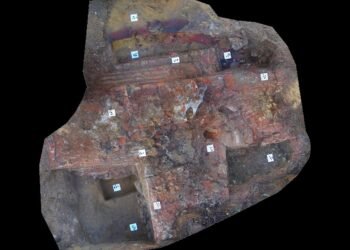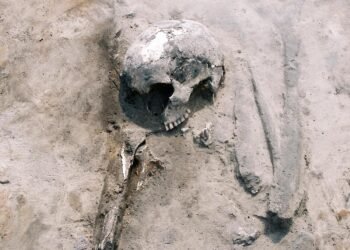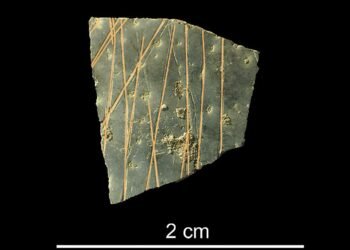Archaeologists excavating a site in the town of Hornachuelos, in Spain’s Córdoba province, made an extraordinary discovery nearly seven years ago. While digging, researchers from the universities of Córdoba, Seville, and Montpellier unearthed a small fragment of a Roman jar used for storing olive oil.
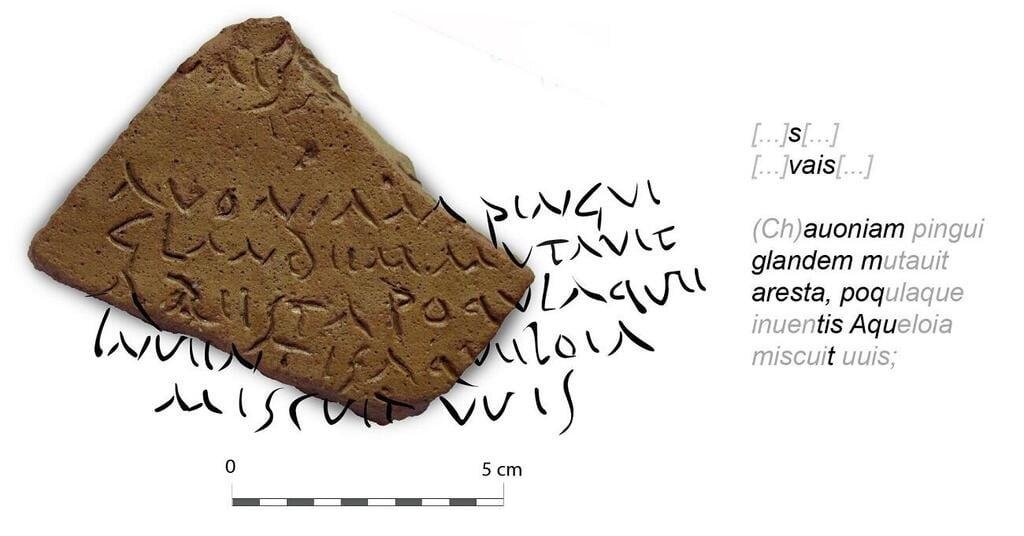
What made this find exceptional was the presence of a literary quote carved into the clay, believed to be the first time a literary quotation has been found on a Roman amphora.
Measuring only 6cm by 8cm, the shard contained an unusually large amount of text compared to the typical engravings found on such vessels.
Initially perplexed by the inscription, the team of archaeologists sought the expertise of Latin scholars who determined that the quote came from Virgil, the renowned ancient poet best known for his epic Latin poem, the Aeneid.
The quote was identified as originating from the first section of Virgil’s Georgics, a work focused on agriculture and rural life.
Translated as “[Earth] once changed the/Chaonian acorn for the plump wheat-ear/And mingled with the grape [your newfound gift],” the verses provided a direct connection to the celebrated poet and his contributions to Roman literature.
The fragment’s location in a rural area known for olive oil production and packaging led researchers to speculate that the verses from the agriculturally-themed Georgics were deemed more fitting than those from the heroics of the Aeneid.
Unlike previous discoveries of Virgil’s texts on bricks, which were likely used for teaching purposes, this amphora fragment indicated a novel context for the presence of literary verses.
The team’s study, published in the Journal of Roman Archaeology, proposes that the inscribed verses on the lower part of the amphora were not intended to be visible.
Instead, they suggest that the author, possibly a skilled laborer or even a child worker at the factory, may have engraved the lines from memory, showcasing a level of education not traditionally associated with such workers.
The discovery has prompted further questions within the archaeological community. Why would Virgil’s words appear on an amphora meant for the olive oil trade, and why were excerpts from the Georgics chosen instead of the more well-known Aeneid?
Researchers speculate that the verses were intentionally hidden on the underside of the amphora, serving as a discreet symbol of the writer’s knowledge and cultural refinement. This finding suggests a certain level of literacy within the fertile Guadalquivir area where the piece was found.
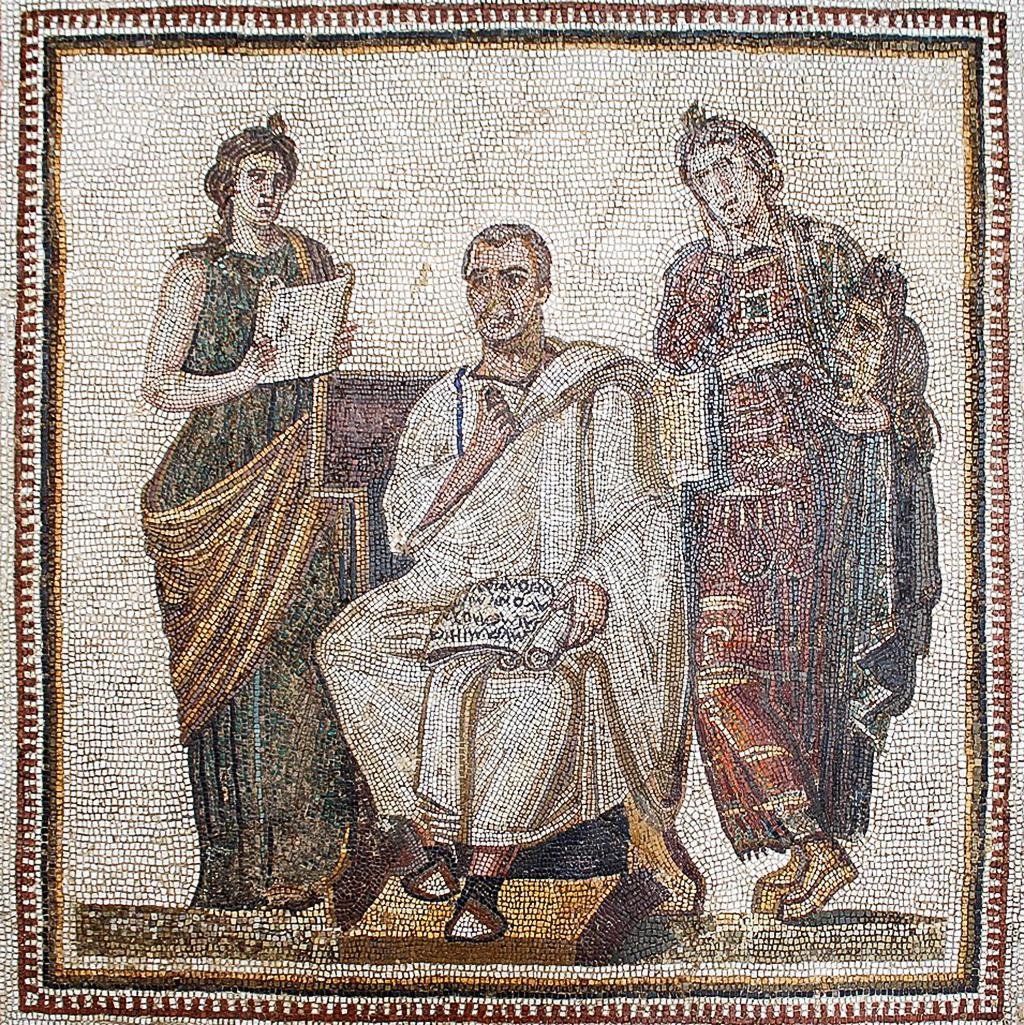
While the identity of the writer remains unknown, the researchers suggest several possibilities. It could have been a literate worker associated with the amphora factory or an individual from nearby villages with connections to an aristocratic family who owned the establishment.
The hypothesis that a young worker, given the prevalence of child labor in such contexts, may have been responsible for the inscription is also entertained.
The significance of this unique artifact lies in its ability to raise compelling questions about ancient Roman society and literacy. The presence of a Virgilian quote on a commercial container challenges previous assumptions and highlights the rich cultural milieu of the time.
As further investigation unfolds, this discovery will undoubtedly continue to captivate archaeologists, epigraphists, and philologists studying colloquial Latin.





